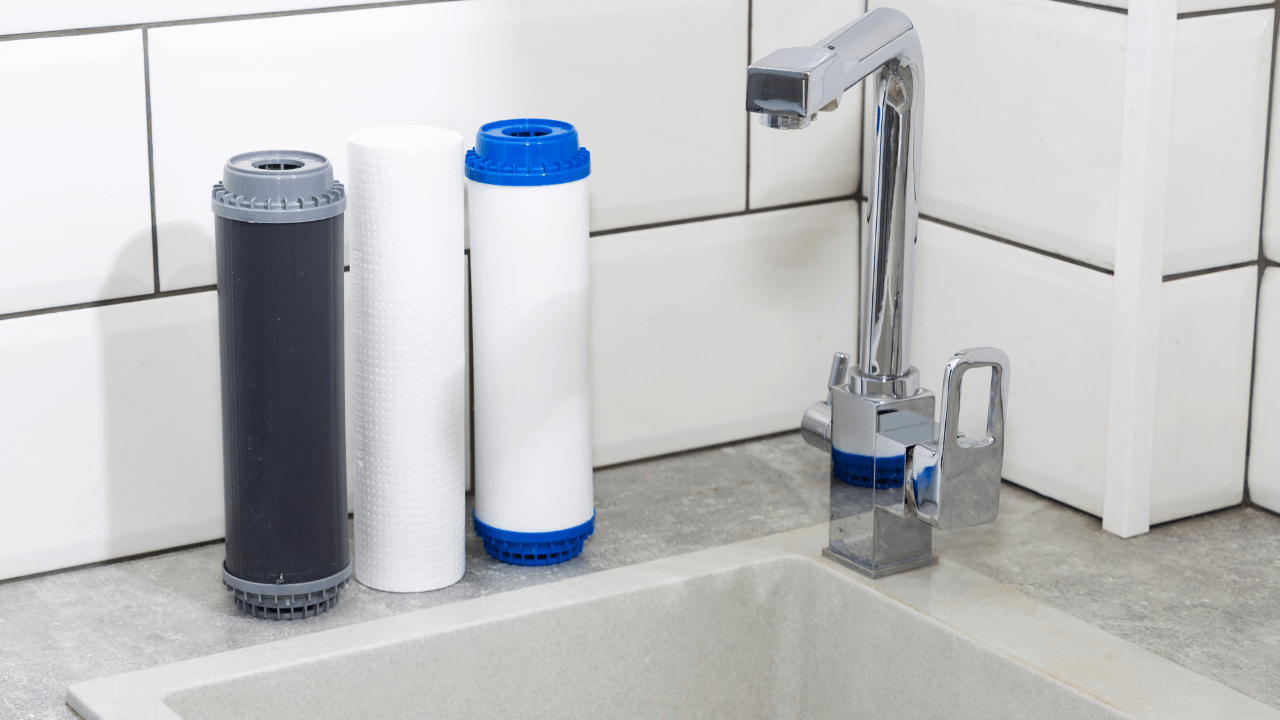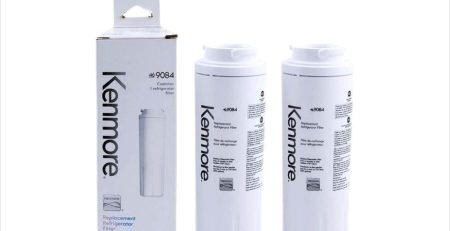Why Aging Infrastructure Makes Refrigerator Filters a Must for Clean Water?
As the world advances technologically, many of our infrastructure systems, including water supply networks, are lagging behind. Aging infrastructure poses significant risks to water quality, making it increasingly essential to invest in additional water filtration solutions. In this context, refrigerator filters have become a crucial tool for ensuring clean and safe drinking water. In this blog, we will explore the impact of deteriorating water infrastructure on water quality and how using high-quality refrigerator filters from Filter For Fridge can provide a reliable safeguard for your family’s health.
The State of Aging Water Infrastructure
- The Challenge of Aging Infrastructure
Many cities and towns around the world are grappling with aging water infrastructure. Pipes, treatment plants, and distribution systems that were installed decades ago are showing signs of wear and tear. As these systems age, they become more susceptible to leaks, contamination, and other issues that can compromise water quality.
- Common Problems with Aging Water Infrastructure
Aging infrastructure can lead to several problems that affect water quality:
- Pipe Leaks and Breaks: Old pipes are prone to leaks and breaks, which can allow contaminants from the surrounding soil or groundwater to enter the water supply. These leaks can also lead to decreased water pressure, affecting the overall performance of the water system.
- Corrosion and Rust: Pipes made of iron or steel can corrode over time, leading to the release of rust and metal particles into the water supply. This can affect the taste and appearance of the water and pose health risks.
- Contaminant Leaching: Aging pipes and storage tanks may leach contaminants into the water, such as lead, which can come from older plumbing fixtures and solder. Lead is a toxic metal that can have severe health implications, particularly for children and pregnant women.
- Inadequate Filtration: Some older water treatment facilities may not have the technology or capacity to effectively remove modern contaminants. For example, they might struggle to filter out pharmaceuticals, microplastics, and other emerging pollutants.
- Reduced Capacity: Aging infrastructure may not be able to handle the increased demand for water due to population growth and urban expansion. This can lead to overburdened systems that are more likely to experience problems.
How Aging Infrastructure Impacts Water Quality
- Contaminant Introduction
As infrastructure deteriorates, the risk of contaminants entering the water supply increases. For instance:
- Heavy Metals: Corroded pipes can release metals like lead, copper, and iron into the water. These metals can have harmful effects on health, including developmental issues in children and cardiovascular problems in adults.
- Pathogens: Leaks and breaks in pipes can introduce pathogens such as bacteria, viruses, and parasites into the water supply. This can lead to waterborne diseases and gastrointestinal infections.
- Organic Compounds: Contaminants from industrial activities, agriculture, and urban runoff can infiltrate old water systems, leading to the presence of harmful organic compounds in the water.
- Decreased Water Quality
Aging infrastructure often leads to decreased water quality in several ways:
- Unpleasant Taste and Odor: Contaminants such as chlorine by-products, organic matter, and rust can affect the taste and odor of the water, making it less appealing and potentially less safe.
- Cloudiness and Discoloration: Corroded pipes and sediment buildup can cause water to appear cloudy or discolored, indicating the presence of particulates that may be harmful.
- Health Risks: Prolonged exposure to contaminated water can lead to a range of health issues, including gastrointestinal problems, neurological disorders, and long-term chronic conditions.
The Role of Refrigerator Filters in Ensuring Clean Water
- Enhanced Filtration Capabilities
Refrigerator filters are designed to provide an additional layer of protection against contaminants that may not be fully removed by municipal water treatment. These filters use advanced filtration technologies, such as activated carbon and reverse osmosis, to address a wide range of impurities:
- Activated Carbon: This technology effectively removes chlorine, volatile organic compounds (VOCs), and other chemicals that can affect taste and odor. Filters like the Kenmore refrigerator filter and EveryDrop water filter use activated carbon to improve the overall quality of your drinking water.
- Reverse Osmosis: Some refrigerator filters incorporate reverse osmosis, which can remove dissolved contaminants such as heavy metals, nitrates, and salts. This technology ensures that even the smallest impurities are filtered out.
- Protection Against Specific Contaminants
High-quality refrigerator filters can target specific contaminants that are commonly associated with aging infrastructure:
- Lead: Many older water systems contain lead pipes or leaded solder, which can leach into the water supply. Filters like the GE MWF filter and EDR4RXD1 are designed to reduce lead levels, providing an important safeguard against this toxic metal.
- Heavy Metals: In addition to lead, refrigerator filters can remove other heavy metals, such as mercury and cadmium, which may be present due to pipe corrosion or industrial pollution. Filters such as the EDR3RXD1 are effective at reducing these harmful substances.
- Pathogens: While refrigerator filters are not designed to replace advanced water treatment systems, some models can help reduce microbial contaminants, providing an extra layer of protection against pathogens that might enter the water supply through aging infrastructure.
- Convenience and Cost-Effectiveness
Refrigerator filters offer a convenient and cost-effective solution for ensuring clean water:
- Ease of Use: Refrigerator filters are easy to install and replace, making it simple to maintain a continuous supply of clean drinking water. Most models, such as the WF3CB and ADQ36006101, have straightforward installation processes that require no specialized tools.
- Affordable Protection: Compared to other water filtration systems, refrigerator filters are relatively affordable and require minimal maintenance. Regular replacement of the filter ensures ongoing protection against contaminants without breaking the bank.
- Convenient Access: Having a refrigerator filter means you can access clean water directly from your fridge, eliminating the need for bottled water or additional filtration systems.
Choosing the Right Refrigerator Filter for Your Needs
- Compatibility
It’s important to choose a refrigerator filter that is compatible with your appliance. Different refrigerators require specific filters, so make sure to select a filter that fits your model. For instance, the Kenmore refrigerator filter is designed for Kenmore refrigerators, while the GE MWF filter is for GE models. Check your refrigerator’s manual or consult the manufacturer’s website to find the correct filter.
- Filtration Capabilities
Consider the types of contaminants that may be present in your water when choosing a filter. Look for filters that are certified to remove specific pollutants, such as lead, heavy metals, and organic compounds. For example, the EveryDrop water filter is designed to address a broad range of contaminants, providing comprehensive protection for your drinking water.
- Certification
Choose filters that have been certified by reputable organizations, such as NSF International. NSF certification ensures that the filter has been tested and verified to reduce specific contaminants effectively. Filters like the EDR1RXD1 and W10295370 are NSF certified, providing assurance that they meet high standards for water filtration.
- Filter Lifespan
Refrigerator filters need to be replaced regularly to maintain their effectiveness. Most filters, such as the ADQ36006101, have a lifespan of about six months, depending on usage and water quality. Be sure to follow the manufacturer’s recommendations for replacement to ensure continuous protection.
Maintaining Your Refrigerator Filter for Optimal Performance
- Regular Replacement
To keep your refrigerator filter working effectively, it’s crucial to replace it on schedule. Over time, the filter can become saturated with contaminants, reducing its ability to purify water. Regular replacement ensures that you continue to enjoy clean, safe drinking water.
- Proper Installation
Proper installation is key to ensuring that your filter functions correctly. Follow the manufacturer’s instructions carefully when installing a new filter. Incorrect installation can lead to leaks or reduced filtration performance, compromising the quality of your water.
- Flushing the Filter
After installing a new filter, it’s important to flush it before use. Flushing involves running several gallons of water through the filter to remove any loose particles or carbon dust. This step ensures that the water you drink is clean and free of impurities.
- Monitoring Water Quality
Even with a high-quality filter, it’s a good idea to periodically monitor your water quality. If you notice any changes in taste, odor, or appearance, it may be time to replace the filter or have your water tested for contaminants.
Conclusion: The Essential Role of Refrigerator Filters in an Aging Infrastructure
In an era where aging water infrastructure poses significant risks to water quality, the importance of having a reliable filtration system cannot be overstated. Refrigerator filters from Filter For Fridge, such as the Kenmore refrigerator filter, EveryDrop water filter, and GE MWF filter, provide a crucial layer of protection against contaminants that may persist even after municipal treatment.
By investing in a high-quality refrigerator filter, you can ensure that your family has access to clean, safe drinking water, despite the challenges posed by aging infrastructure. Regular maintenance and proper usage of your filter will help safeguard your health and provide peace of mind in a world where water quality is increasingly at risk.
Take proactive steps to protect your family’s health by choosing a reliable filter from Filter For Fridge today. In an age of deteriorating infrastructure, a simple filter can make a significant difference in ensuring the purity and safety of your drinking water.





